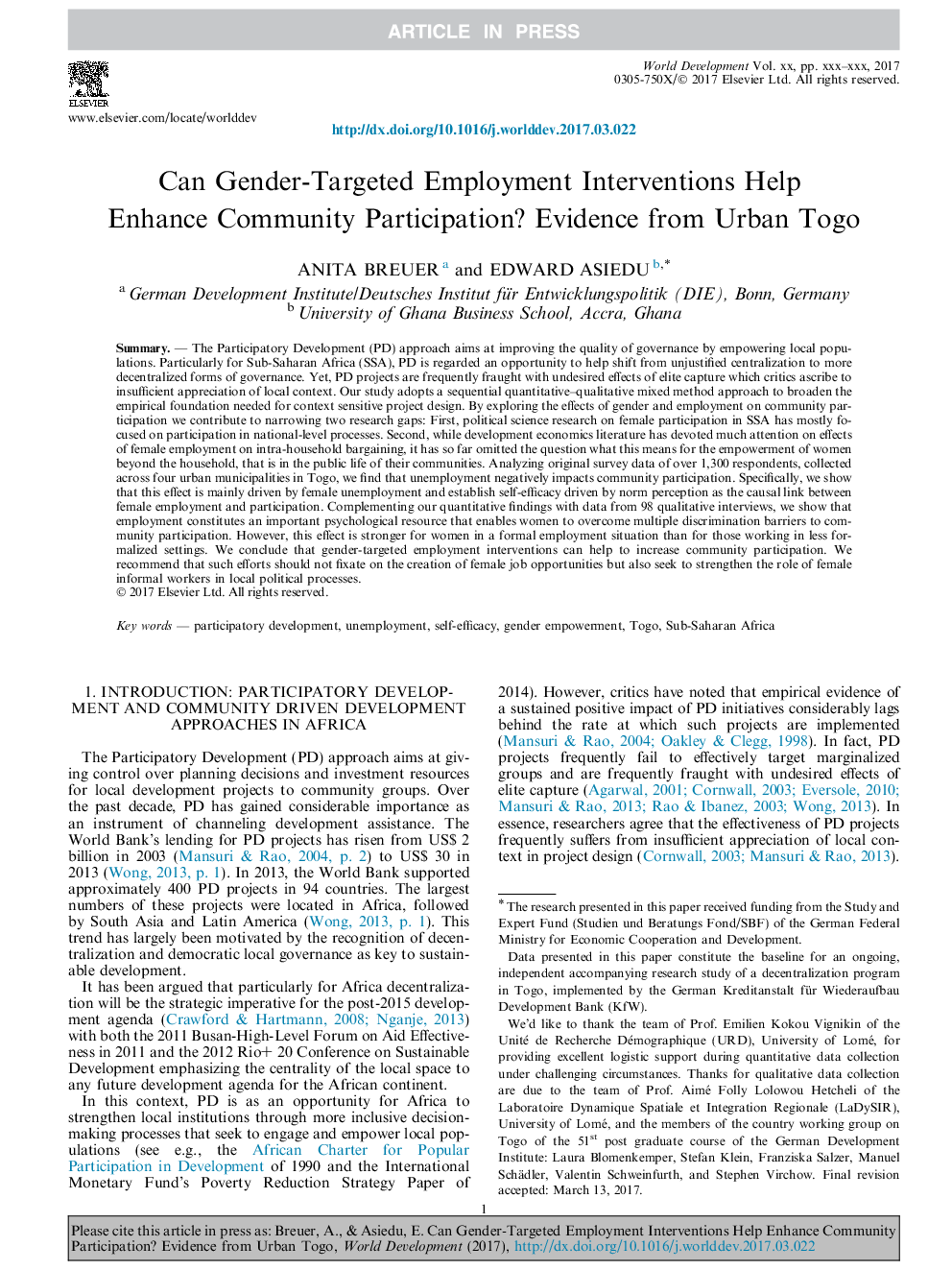ترجمه فارسی عنوان مقاله
آیا مداخلات استخدامی با هدف جنسیتی می تواند مشارکت جامعه را افزایش دهد؟ شواهد از شهر توگو
عنوان انگلیسی
Can Gender-Targeted Employment Interventions Help Enhance Community Participation? Evidence from Urban Togo
| کد مقاله | سال انتشار | تعداد صفحات مقاله انگلیسی |
|---|---|---|
| 112594 | 2017 | 18 صفحه PDF |
منبع

Publisher : Elsevier - Science Direct (الزویر - ساینس دایرکت)
Journal : World Development, Volume 96, August 2017, Pages 390-407
ترجمه کلمات کلیدی
توسعه مشارکتی، بیکاری، خودکارآمدی، توانمند سازی جنس، رفتن، جنوب صحرای آفریقا،
کلمات کلیدی انگلیسی
participatory development; unemployment; self-efficacy; gender empowerment; Togo; Sub-Saharan Africa;

